In the period from May 10 to 20, 2024, Valeria Dubovyk, a fourth-year student of the specialty 035 Philology of the Faculty of Philology, Psychology and Pedagogy of the National University «Yuri Kondratyuk Poltava Polytechnic» took an active part in the short-term grant study program "Study Tours to Poland" (STP), organized by Fundacja Edukacji Pozaformalnej w Bielsku-Białej, "Leaders of Change" and "Borussia" foundations in the city in the middle of the mountains - Bielsko-Biała (Poland). Ukraine and Moldova became participating countries.
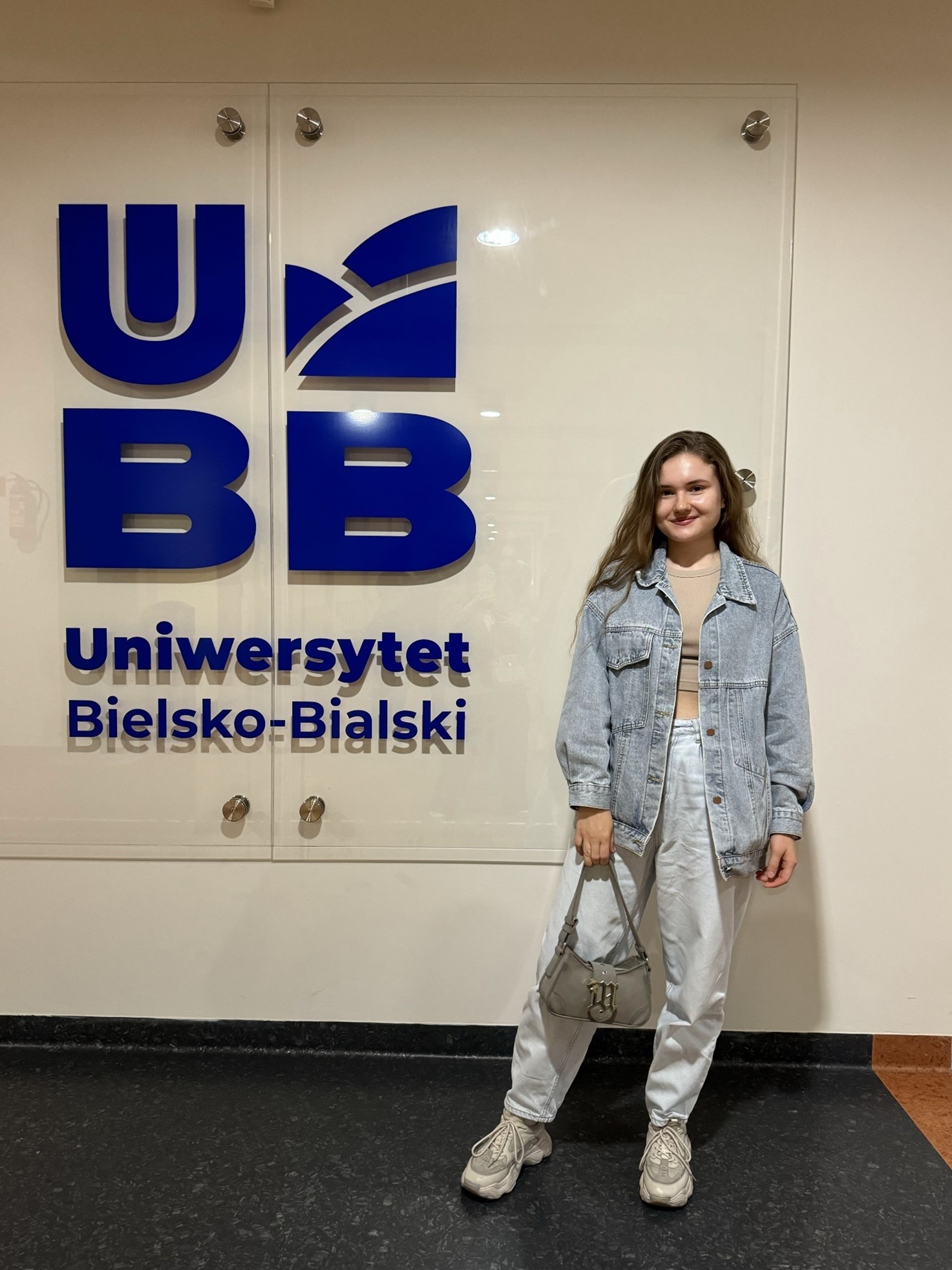
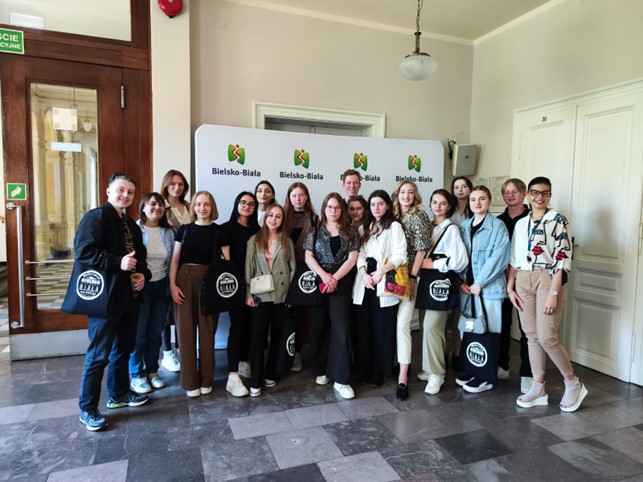
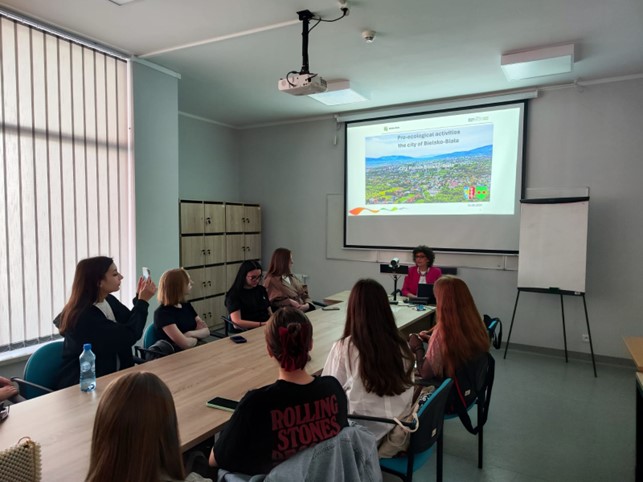
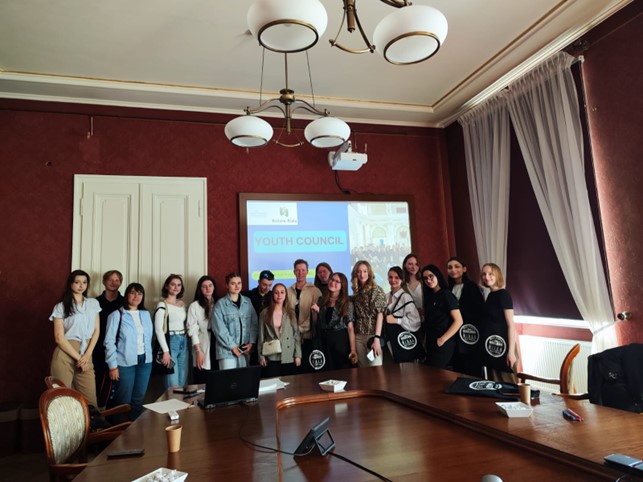
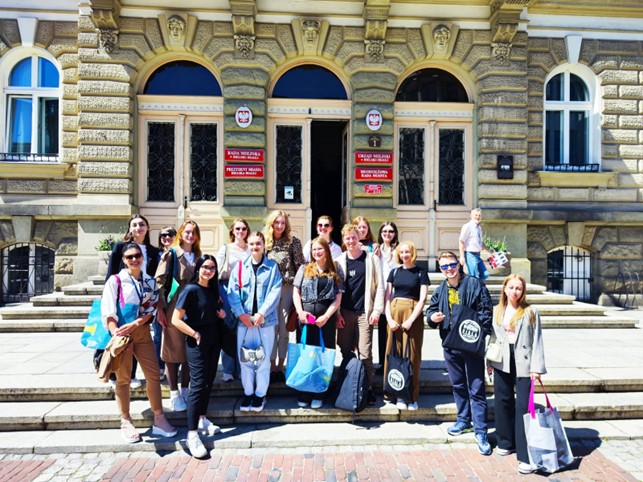
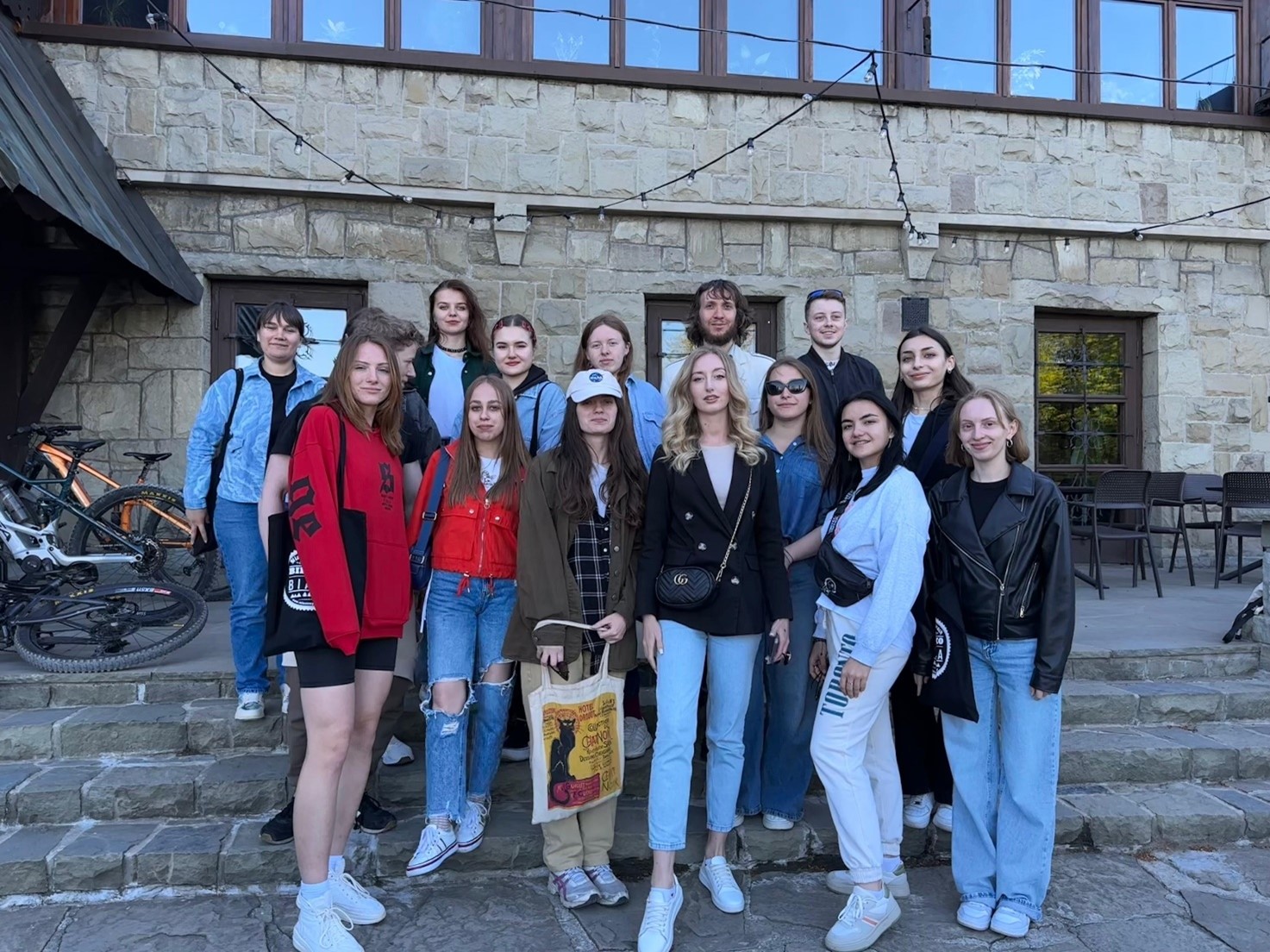
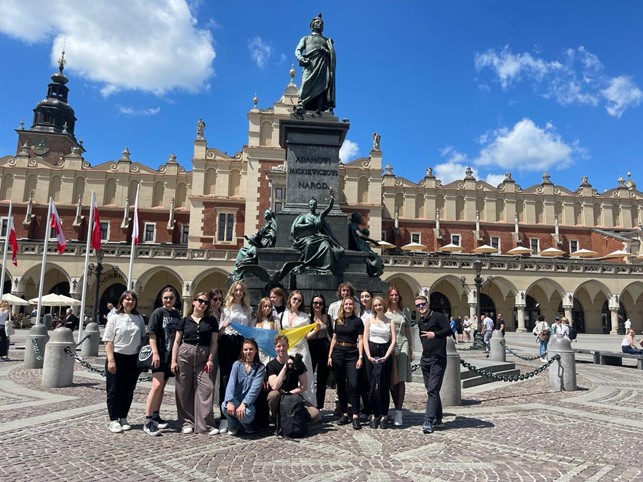
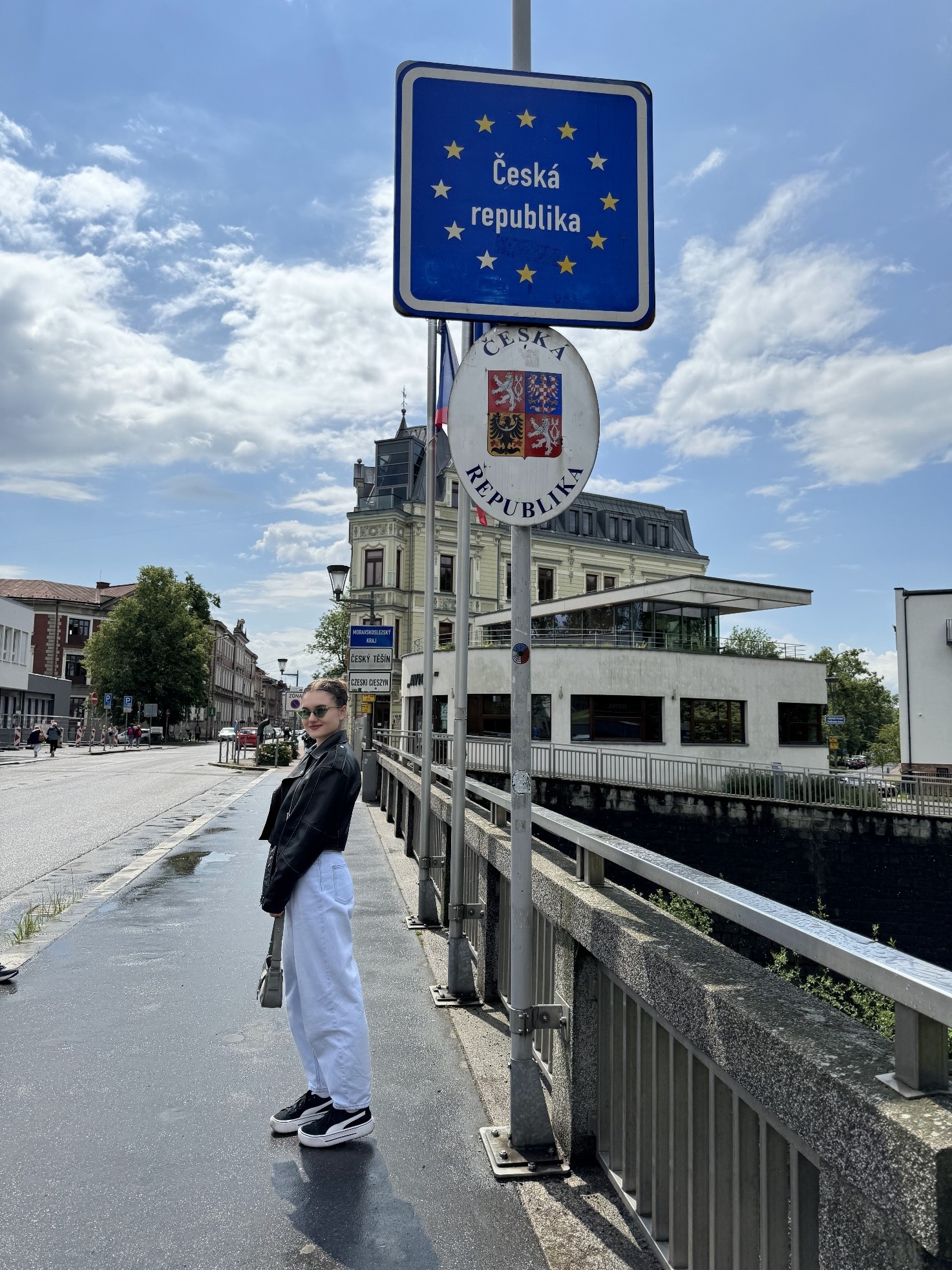
The participants of STP lived in two houses with their own terraces located on the territory of the hotel "Szyndzielnia". Since the hotel is located on the outskirts of the city, the invited students had the opportunity to enjoy the mountain scenery of Bielsko-Biała in between classes.
"As the organizers told us, they booked us small houses, not hotel rooms, so that we would have a common space for social integration. And it really worked - very quickly we became one family," says Valeria Dubovyk.
During the period of participation in the program, the student enriched her knowledge of Polish culture and traditions, took part in workshops, the speakers of which were invited professors from the University of Bielsko-Biała. In addition, Valeria got acquainted with governmental and non-governmental institutions of Bielsko-Biała, aimed at working with young people, and visited the cities of Żywiec, Krakow and Cieszyn.
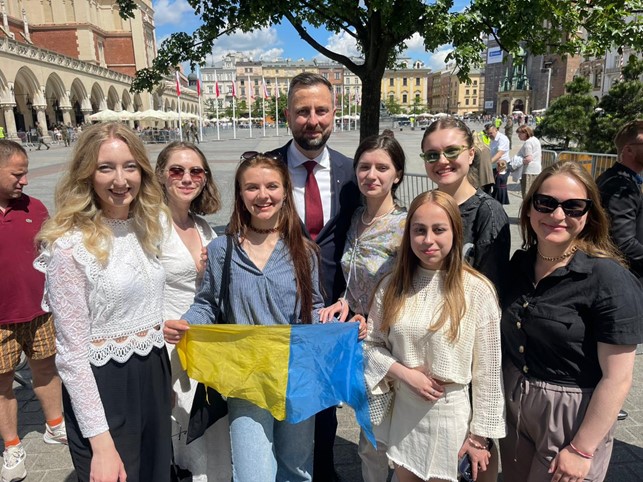
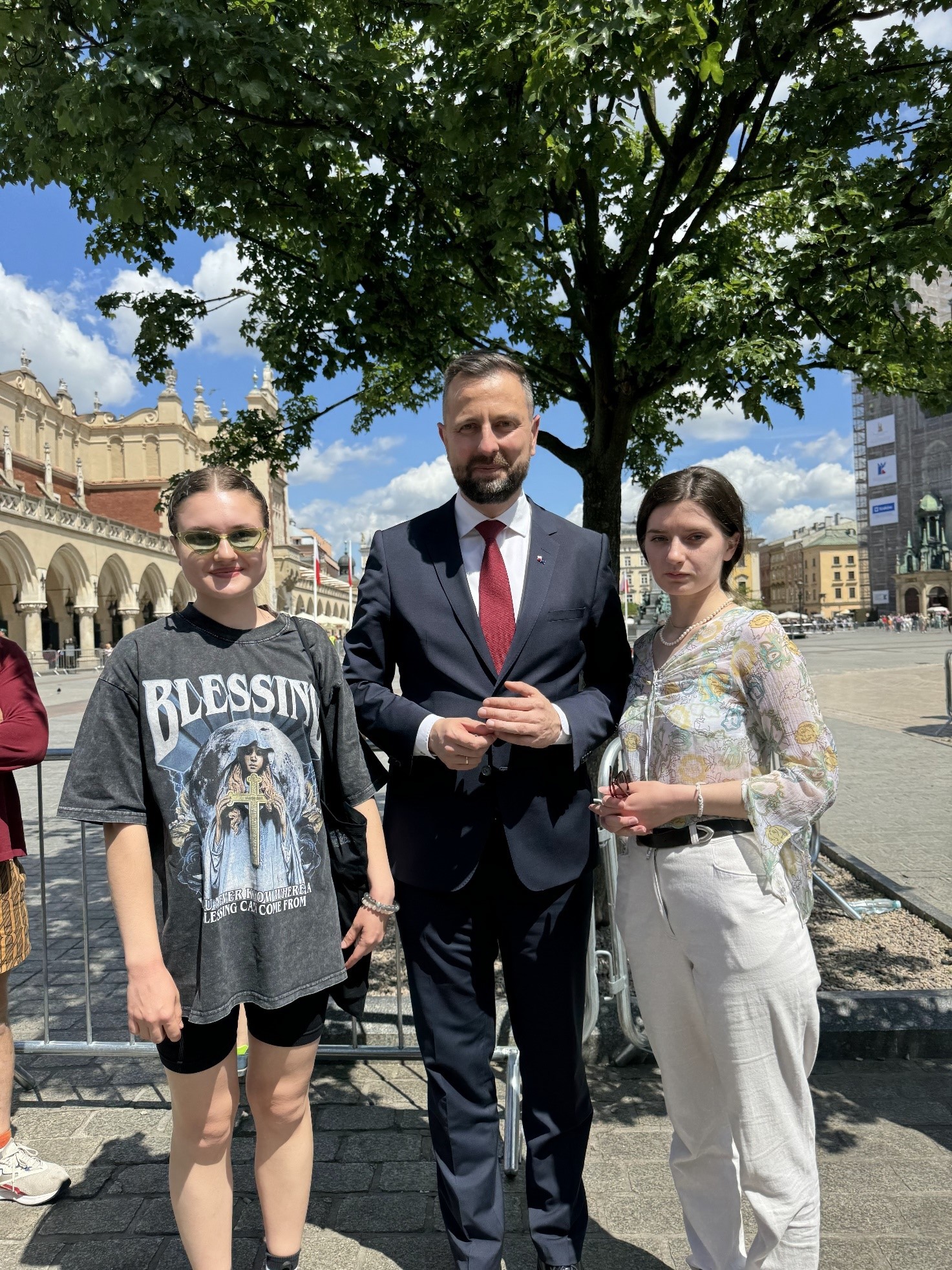
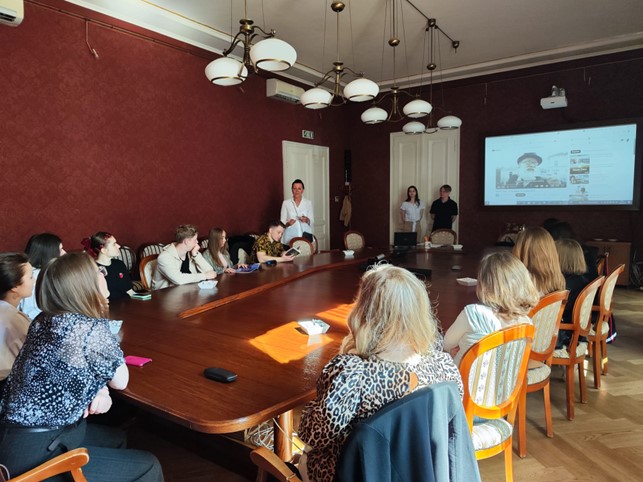
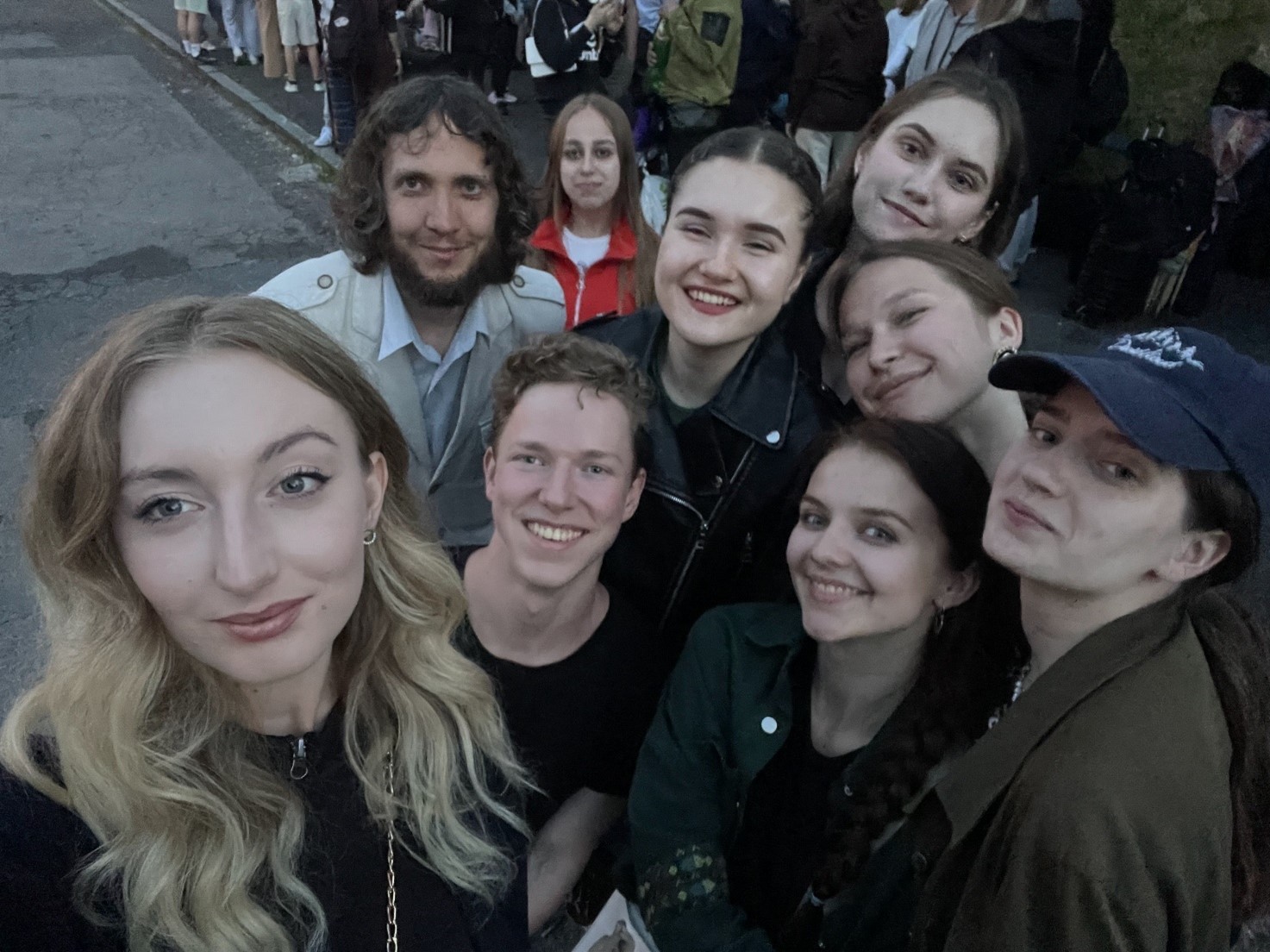
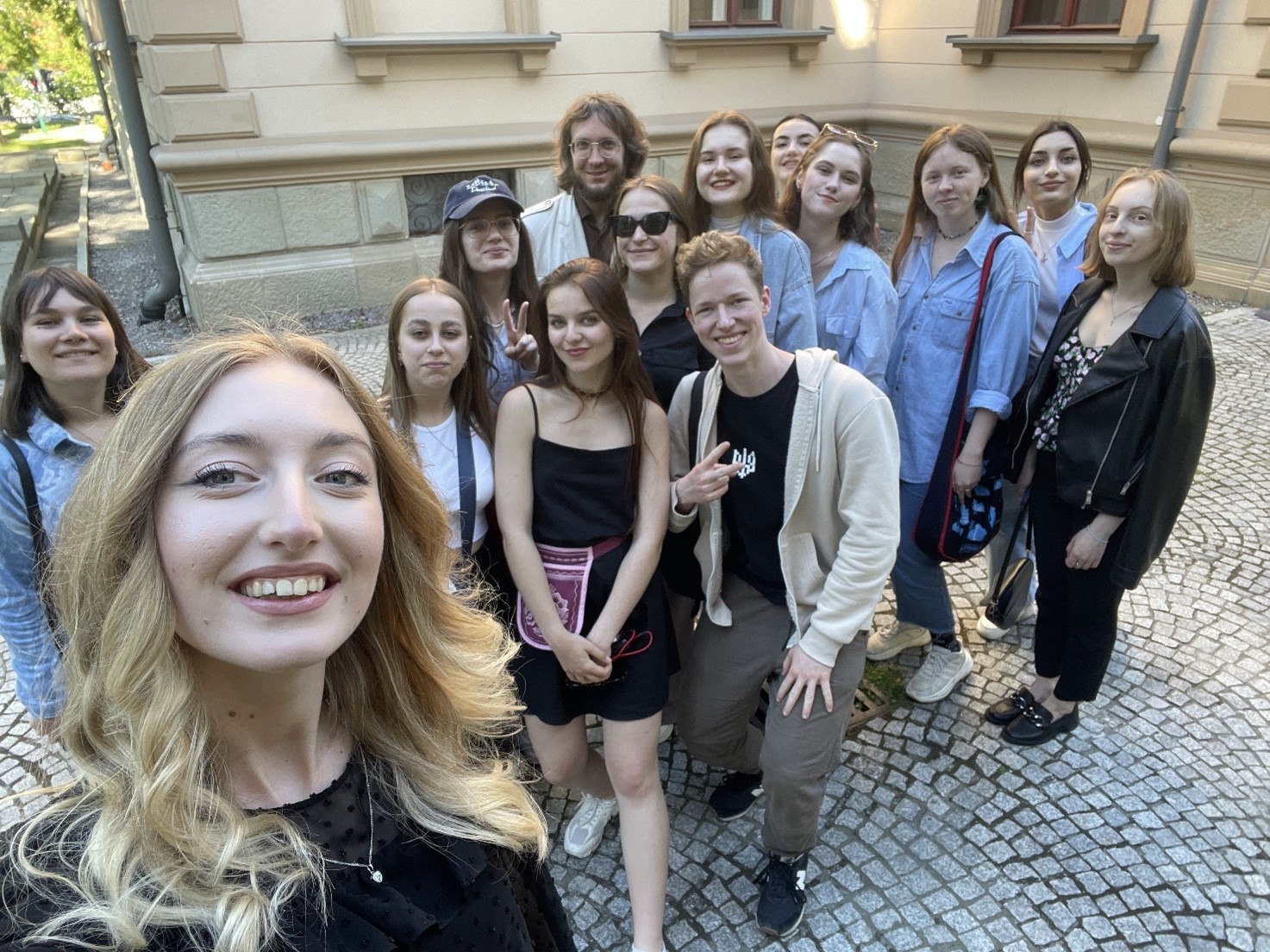
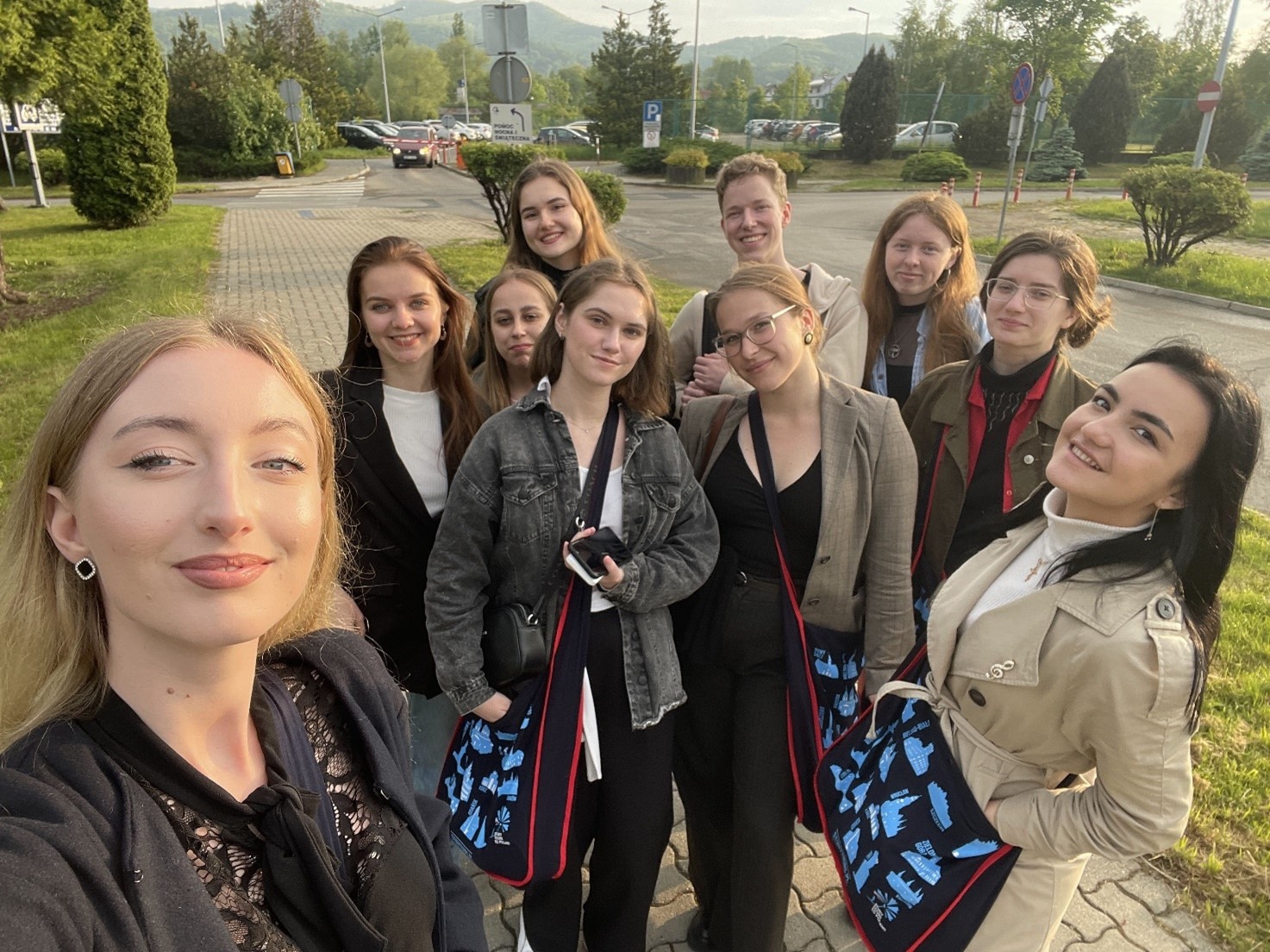
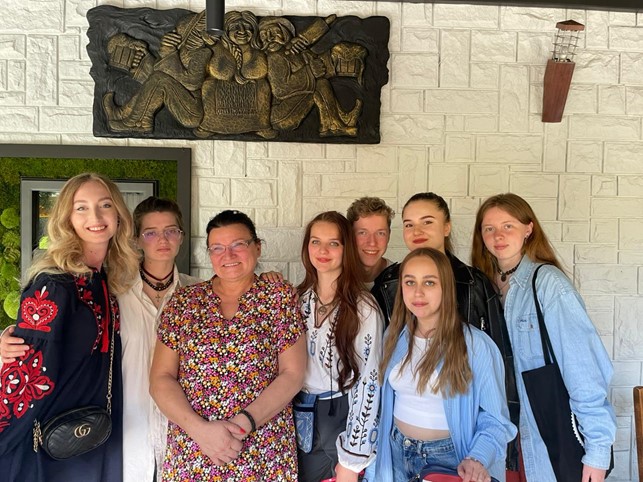
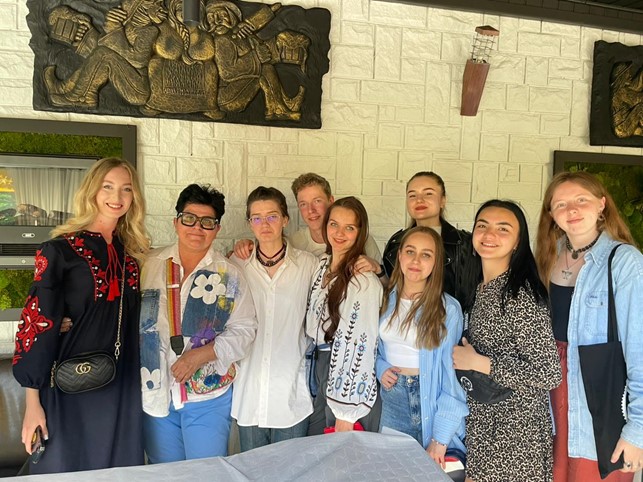
On May 11, an introductory meeting of all participants was held at the volunteer center in Bielsko-Biała. After team activities, participating students shared their expectations from the program and received gifts in the form of socks, tote bags and stationery trinkets.
In the afternoon, the students were given a tour of the city of Bielsko-Biała, where they showed famous places - The Castle of the Dukes of Sułkowski, the market square, the St. Nicholas Cathedral, the drama theater, and the old weaving factory.
"At the time when we were supposed to have an excursion, it started to rain, but it did not stop us. We bought the cheapest umbrellas and went to explore Bielsko-Biała. I adore small and cozy cities, so I felt comfortable here. The whole city is covered with wall paintings, flowers are planted everywhere, and the restored facades of the buildings preserve the authenticity of the city," the student recalls.
The next day, the participants joined the discussion of such issues as social integration from a historical, social and cultural point of view, the civilizational and cultural dimension of the EU in the context of Poland and Europe, the place and role of youth in the EU and the challenges of the EU in a globalized world. Those present actively exchanged opinions and experiences, presenting different perspectives and visions of the future of Europe.
"Study Tours to Poland" is not just a trip, it is an opportunity to raise issues concerning our future. This discussion was useful, as we considered many topics and identified the ways of youth influence on the further development of Europe", - emphasized the participant of the program, Valeria Dubovyk.
After the discussion, the facilitators held an interactive session dedicated to the traditions and cultural practices of Poland. Students were introduced to interesting habits of polish people and their superstitions, and stereotypes about them were dispelled. The presentation turned into an active conversation, where participants from Moldova and Ukraine began to share the cultural features of their own countries.
From the dialogue, the participating students learned that a large number of traditions, cultural practices and superstitions are the same in Poland, Ukraine and Moldova. For example, in Poland and Moldova, as well as in Ukraine, it is customary to give an odd number of flowers, have a china that is used only for holidays, cook 12 dishes for Christmas and believe that a black cat that crosses the road will bring bad luck.
"I was struck by how similar our people are in both traditions and behavior. This discovery helps to better understand each other and feel a sense of community across borders. Such moments are very important for the improvement of relations between European nations, because common traditions and values contribute to the strengthening of cultural and social ties," notes Valeria Dubovyk.
At the end of the day, a game was prepared for the students. Each of the participants had a task: puzzles and riddles related to interesting facts about the city. In order to solve them, foreign participants had to find various clues that were located on the most famous houses of Bielsko-Biała.
"During our walk, we not only relaxed and enjoyed the beauty of Bielsko-Biała, but also completely immersed ourselves in the fascinating history of the city. The realization that each brick carries its own, unique and centuries-old history is incredible!" - recalls the participant.
On May 13, the participants focused their attention on such key issues as systemic transformation, the role of the state, and the impact of artificial intelligence on modern life. All students actively discussed the impact of recent technologies on the future and how the government can speed up or slow down the development of civil society.
"The discussion impressed all of us and prompted us to think about important issues. In today's world, artificial intelligence affects all areas of our existence. That's why we have to learn to adapt and develop our skills to use it for the benefit of society," emphasizes Valeria Dubovyk.
The morning of May 14 began with a visit to the City Hall of Bielska-Białej, a meeting with the City Youth Council (Młodzieżowa Rada Miasta Bielska-Białej). There, the invited students were introduced to its representatives, treated to sweets and presented with gifts. Then the participants were told about the principle of the council's work, its duties and organized events.
After the presentation, the Ukrainian-Moldovan students had a creative task: to create a project on the topic "What would you do if you were in the Youth Council of your city?". All participants were divided into four international teams. Valeria Dubovyk's team prepared a plan for creating a youth festival, which consisted of different sections: scientific - an exhibition of scientific inventions that will contribute to the development of the city; musical - the organization of a charity concert, with the presentation of songs, dances and various musical instruments; sports - holding the Olympic Games and demonstrating sports sections; artistic - exhibiting the works of young artists, photographers and videographers.
"I liked working in a team with Ukrainian and Moldovan students. We quickly rallied and created a detailed plan for our youth festival. Everyone contributed to the creation of this event, and the results of our joint work impressed not only us, but also all the participants of the presentation!", Valeria Dubovyk shares her impressions.
Next, according to the plan, the participants met the director of the Municipal Center of Social Assistance (Miejski Ośrodek Pomocy Społecznej(MOPS)). In particular, the students were told about the work of the center, namely about the implementation of projects related to helping the elderly - providing the older generation with devices for pulse measurement and ambulance emergency calls, and providing people with disabilities with a personal assistant and development classes.
"After talking with the director, we were given a tour of the building, where we were introduced to each employee of the center. We also managed to visit a class for people with special needs. As soon as we entered the room, they smiled, after which they gave us postcards with their drawings, we were delighted," recalls Valeria.
After all the visits, the students were waiting for a ride on the cable car to the top of Szyndzielnia. Having arrived at the place, the foreign participants climbed the observation tower, where they had the opportunity to enjoy the beauty of Polish landscapes and take photos for memories.
“It was a great way to end a busy day. The views were simply incredible! In addition, such joint activity helped us to strengthen friendly ties between all participants. We talked a lot, shared impressions and took pictures together. It really united our international group," Valeria Dubovyk says.
May 15 was devoted to discussing the topic of culture, coming to the conclusion that culture is similar to an iceberg with visible and invisible parts: there are cultural signs that immediately present the nationality, and those that need to be explored from the inside of the country to understand.
After the theoretical block, the invited students moved on to the practical part. The representatives of the countries had to draw an iceberg, on the visible part of which the well-known cultural features that foreigners associate with their country should be displayed, and on the invisible part - little-known aspects of culture.
"This class helped to get to know each country and its features better and to deepen knowledge about the culture of other countries. Drawing an iceberg, we realized how multifaceted the culture of our nation is. It was very interesting to learn about things that are usually overlooked, and to communicate with foreign participants, exchanging knowledge and interesting facts about their countries," says the student.
On May 16, the participants had a study visit to the city of Żywiec, where they visited the Special Educational Center named after Maria Grzegozhevska. The institution has been accepting pupils since 1960. Currently, the center educates children with mild, moderate, severe and profound intellectual disabilities, autism and multiple disabilities.
After the introductory meeting, the students were given a tour, where they showed different classrooms for teaching students. In general, the institution consists of: a special primary school, a vocational training school of the first degree, a school of labor training, a rehabilitation and educational team, a boarding school and a program for early support of the child's development. In addition, the center operates an occupational therapy workshop for adults with disabilities.
The students did not leave the foreign guests without attention and presented them with cups with the emblem of the educational center and keychains, which they made themselves on a 3D printer. During the breaks, students studying to be chefs treated the participants to canapés and freshly baked berry pie.
"It was an interesting experience for me, because I had never visited such places before. I saw how important such centers are, where children with special needs can learn in comfortable conditions and acquire skills for their future profession. I was also moved by one girl with Down syndrome. When we were walking along the hall, she noticed me and came up to hug me," Valeria Dubovyk recalls.
The next day, students were given a workshop where they were told about the peculiarities of Poland's economy. They learned about the principles of the free market, doing business, the taxation system, and where to find financial resources to start your own business.
In addition, the participating students were visited by a special guest - an entrepreneur from Bielsko-Biała, who shared the realities of doing business in Poland. After his speech, participants had the opportunity to ask questions about starting their own business and get advice on tools that will help promote it effectively.
In the afternoon, foreign students got to know the local youth, who on their own initiative created the "VV" editorial office. This organization unites creative people interested in journalism, photography, film production and graphic design. Thanks to joint efforts, they published a youth magazine and launched social projects for children and teenagers. The representatives of the editorial office talked about how to start your own non-governmental organization and what difficulties may arise along the way.
"It was interesting to hear about how to create your own NGO and how to conduct business correctly, because I would like to try myself in this field," says Valeria.
The participants spent May 18 in Krakow, where they had time to walk around the city. They visited the Old Town, Kazimierza, Wawel and other famous places. But this was not the only thing that made the trip memorable for the guests of the city. While the students were walking around the city center, they noticed a large gathering of police and military personnel. As it turned out, the Minister of Defense of Poland, Władysław Kosiniak-Kamysh, visited Krakow. Valeria and the other Ukrainian participants gathered courage and asked the minister to take a photo with him as a souvenir, to which he gladly agreed.
"It was a very stressful situation, because we were surrounded by armed people. But Ukrainians are not afraid of anything, and now I can boast that I have a photo with the current Minister of Defense of Poland," the student recalls with a smile.
The next day, another trip awaited the participants, but already to the city of Cieszyn. There they visited the branch of the WSB Academy in Cieszyn. During this excursion, the invited students were presented with various academic mobilities for foreigners. In addition, they learned how the academy manages to combine educational process in online and offline forms. After that, the guests were invited to join the Polish students in the Oxford debate.
It is worth noting that the territory of the city of Cieszyn is divided into Polish and Czech parts, so you can easily cross the city border on foot and visit both Poland and the Czech Republic at the same time. The students could not help but take advantage of this opportunity, so immediately after the educational visit to the academy, they went to explore the Czech side of Cieszyn.
"It's a very strange feeling when you realize that one of your feet is still in Poland, and the other is already in the Czech Republic. For us, it became real fun to run from one country to another," Valeria shares her impressions.
On May 19, all participants were gathered at a farewell workshop, where each of them shared their impressions of the project and what was most memorable. Then each of them was given a certificate of participation. At the end of the ceremony, students from Moldova prepared a surprise - a sweet table with their national sweets and a presentation of national dances and songs.
"It was hard to realize that the end of the project had already come. During these 10 days, we became a real family. I am grateful to "Study Tours to Poland" for such an incredible trip, meeting nice people and memories that will always warm my heart," says Valeria Dubovyk.

Soon, the "Leaders of Change" Foundation and the "Borussia" Foundation will open a new recruitment for participation in the "Study Tours to Poland" (STP) Program for motivated and active youth from Moldova and Ukraine. The purpose of this program is to create an opportunity for people from different countries to meet and get to know each other. In this way, they want to build and develop relations in our part of Europe. People, institutions and organizations from Poland, who share their success stories and challenges with the participants, are the guides in this process.
To participate in STP, candidates are selected on a competitive basis.
Previously, future professionals mastered the tools of managing various social fields as part of the "Study Tours to Poland" grant program, future female architects shared their impressions of participating in the ICAMES 2024 conference in Istanbul, and scientists from the Faculty of Philology, Psychology and Pedagogy participated in an internship at the Transylvanian University of Brasov.
It should be noted that Poltava Polytechnic students have the opportunity to study abroad under Erasmus+ credit academic mobility grant programs for a semester or an entire academic year at leading universities in Austria, Greenland, Denmark, Estonia, Lithuania, Latvia, Norway, the Netherlands, Germany, Poland, Romania, Slovakia, Finland, the Czech Republic.
For more detailed information about current academic mobility programs, contact the international relations department (room 320-Ф, interoffice@nupp.edu.ua) or the coordinator of international activities of the National University «Yuri Kondratyuk Poltava Polytechnic» - Doctor of Philology, assistant professor of the department of Germanic philology and translation Anna Kostyantynivna Pavelieva (room 310-Ц, email: kunsite.zi@gmail.com, phone: +38(095)-91-08-192).



